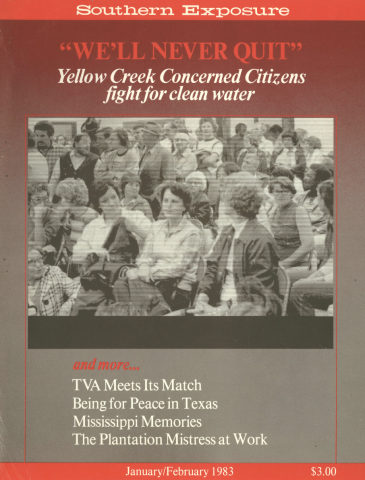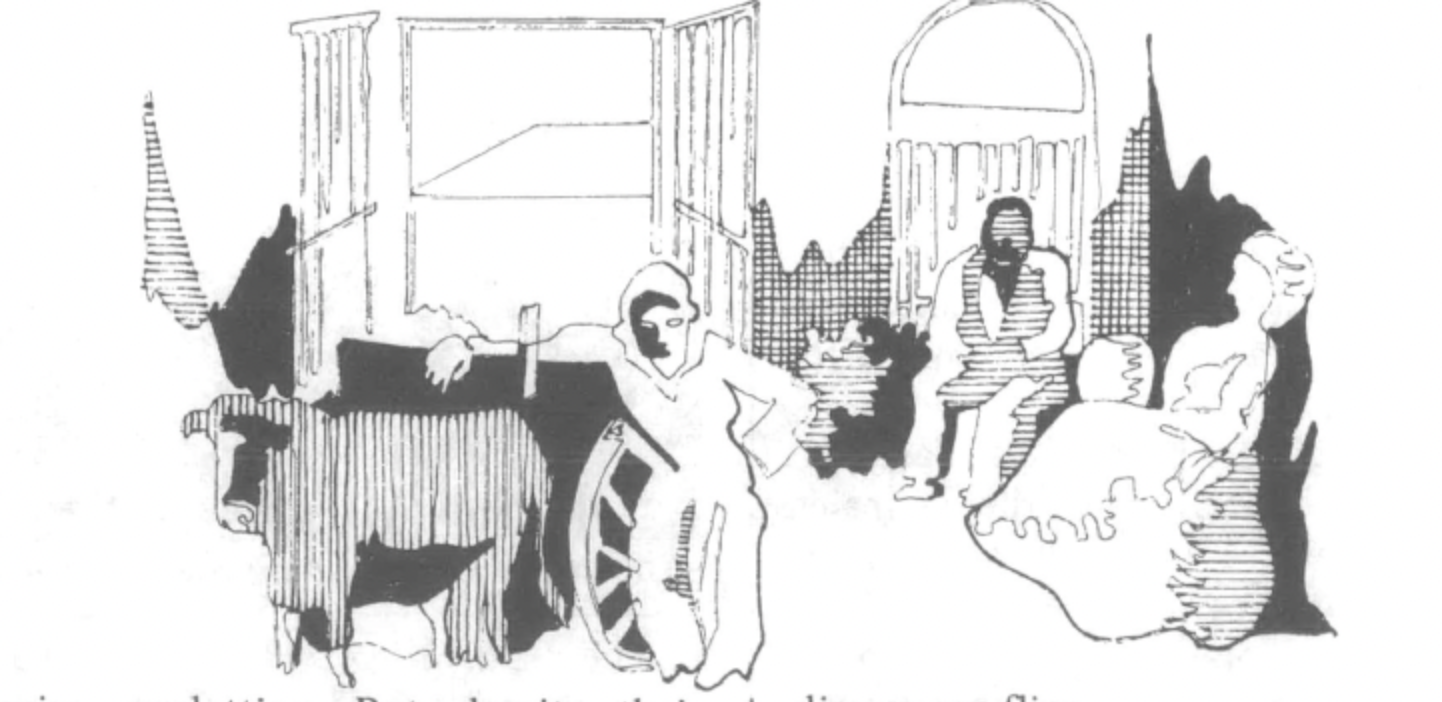
This article originally appeared in Southern Exposure Vol. 11 No. 1, "'We'll Never Quit:' Yellow Creek Concerned Citizens fight for clean water." Find more from that issue here.
MOBILE, AL — Downtown Mobile looks like a North African city after a bombardment, with gaping spaces, white light cruelly reflected from plastered walls, desolate parking lots unrelieved by even a solitary oleander or chinaberry tree. But 'twas not always so.
Well into the 1930s, downtown Dauphin Street was a long arcade of galleries and balconies, with deep cool shadows on hot days. There were more palm trees then, and oleanders. There were vendors with huge oyster-white umbrellas on their wagons or carts. Every garden downtown had its Grand Duke Jessamine, a charming and obliging shrubby plant which can be bush, climber, pot plant or standard, according to your whim. The candy sweetness of its perfume pervaded the downtown neighborhoods.
Mobile looked to be what it is in fact: a subtropical city, much more Caribbean than it is now. Men wore white suits and hard "straw katys" or soft Panama hats. Ladies carried parasols, not umbrellas — though some old-fashioned ladies, both black and white, carried huge white silk umbrellas in sun or rain. There was an influx of Chinese waxed or lacquered paper parasols in the 1920s, which lent a note of exotic color to downtown streets.
The elevators in downtown buildings were not the sealed space capsules of today, but open fretwork iron cages which rattled up and down, presenting an alarming view of dangling cables and chains, and sometimes an exhilarating vista of the wharves, the river, the bay. There was a definite reason for this kind of elevator. I speak of the days before air conditioning. Both men and women dressed for the heat: cotton, linens, seersucker, dotted swiss, eyeletting. But despite their best efforts (a dash of Florida water or witch hazel after the morning shave, a dusting of talc under their clothes), men who had spent a summer day working in the office usually achieved a definite doggy or goaty presence by late afternoon. There was no way to conceal that acrid odor of heated flesh in a subtropical climate: hence the open elevators.
Mobile was subtropical. People honored the siesta. Men came home for a big noon dinner and an afternoon nap. Shutters were closed tight, sometimes windows too: they were opened around midnight, in "the cool of the evening." Verandas or front galleries, and some store-fronts, which received the morning or afternoon sun in full blaze, were fitted out with huge striped awnings. These were raised and lowered in a daily ritual, with a clanking and flapping which often echoed down the street, sounding like the mating dance of some congress of grey herons.
Then there were the watermelon vendors. I think they fell victim to health department regulations in the 1930s, but my, what a sight they were. They displayed the crimson melon sections arranged on ice, sometimes with halved lemons for ornament. The melons were covered with red or pink cheesecloth, and a slow-grinding, oscillating electric fan waved long crepe paper streamers over the display to discourage flies.
But the final subtropical touch, which I've missed since way back, is the smell of ripe figs. Downtown courts and kitchen gardens all had a fig tree or two, and at least one lemon. The smell of ripe figs on the tree and a few fermenting on the ground was the essence of a Mobile summer, especially when mingled with the perfume of the honeysuckle. Once, in the oasis of Khibele in the Sahara desert, I suddenly was overwhelmed with a powerful pang of something: what? At last I realized I was smelling ripe figs and honeysuckle together.
My tale doesn't end there: on a bus moving across the white sands, heading back to El Dieb, I saw a solitary palm tree. I convinced the driver to stop the bus so I could plod ankle-deep through the white grains to see the poster on the trunk of this palm in the middle of nowhere. It was in French and announced a concert of the "Swingle Singers" in Tunis the next night. Ward Swingle is of course a Mobile product, as I myself am. Subtropical he; subtropical I. Subtropical Mobile.
Tags
Eugene Walter
Eugene Walter is a novelist, actor, and poet in Mobile, AL. (1983)

